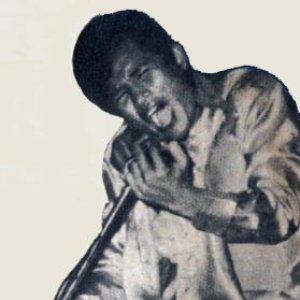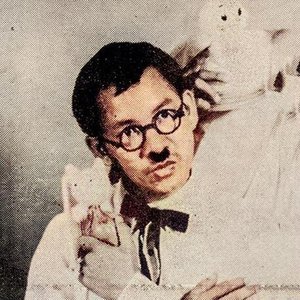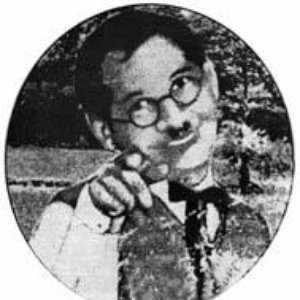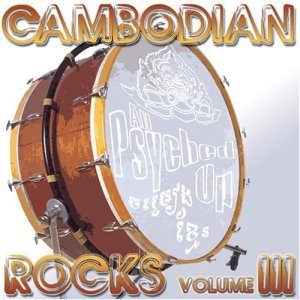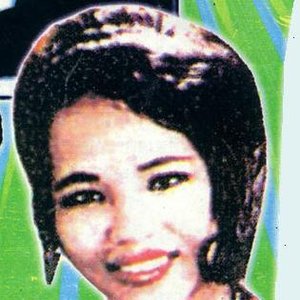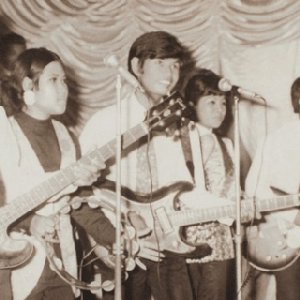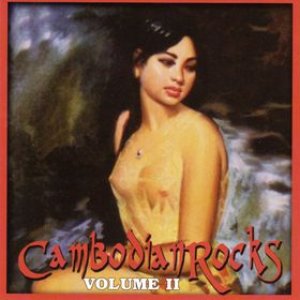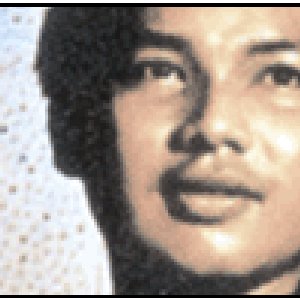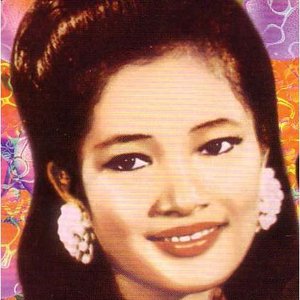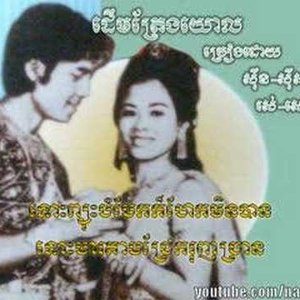Biography
Yol Aularong (Khmer: យស អូឡារាំង; also romanized as Yos Olarang) was a Cambodian garage rock musician, and a leading figure in that country's rock scene of the 1960s and 70s. He is presumed to have been killed during the Cambodian Genocide that took place under the Khmer Rouge between 1975 and 1979.
Aularong was from a family of notable Cambodian musicians: singers Sieng Vanthy and Sieng Di were his aunts, and classical violinist/composer Has Salon was his uncle. His father was a member of Cambodia's diplomatic corps and he spent some of his childhood in France.
Embarking on a music career, he stood out from the typical Cambodian pop music of the time by focusing on self-expression and social commentary. His public persona was that of a "bad boy" who flirted, sang sarcastic songs about everyday life, and claimed not to care about money or fame. The Guardian called him "a certifiable maniac" and The New York Times described him as "a charismatic proto-punk who mocked conformist society." He often utilized Vanthy and Pen Ram (younger sister of Pen Ran) as backing singers.
As with many of his contemporaries, a great deal of the information about Aularong's life, as well as his creative output, was lost during the Khmer Rouge regime. He was last seen shortly after the Khmer Rouge seized control in April 1975 and ordered all residents of Phnom Penh to evacuate the city. He left with his mother, although in an interview for the 2015 documentary film Don't Think I've Forgotten, which profiles Aularong, his aunt speculated he was likely killed. A member of the Cambodian royal family who knew Aularong explained that as a non-conformist musician with western influences, Aularong was likely targeted for imprisonment or execution immediately. His fate has never been confirmed.
Aularong was regarded as an original artist, incorporating elements of soul, funk, and rock into his songs. His lyrics were often humorous or sarcastic, based on everyday life and current styles. According to Rebeat, his "subversive, satirical style and distorted psych guitar makes him the joker/rebel of the Cambodian rock scene." According to LinDa Saphan, "In the 1970s, Yol Aularong and Meas Samon were the only singers and songwriters who were making social commentary through their songs. Aularong used irony to comment on Cambodia's bourgeois conformist society."
Western audiences were introduced to Aularong's work through compilation releases many years later. Cambodian Rocks, released on the New York-based Parallel World label in 1996, contained 22 uncredited, untitled tracks of pre-Khmer Rouge psychedelic and garage rock music. In the years since its release, the tracks have been identified and three attributed to Aularong. The compilation drew attention to the novel sound of music produced by Aularong and his contemporaries who combined popular Western genres like garage, psychedelic, and surf rock, with Khmer vocal techniques, instrumental innovations, and the popular romvong "circle dance music" trend. A reviewer likened his "Yuvajon Kouge Jet", for example, to a "fuzzed-out, reverb-soaked" "go-go organ and fuzz-guitar" cover of Them's "Gloria". "Jeas Cyclo", meanwhile, is considered by The Diplomat to be "one of the most enduring pop hits of Cambodia's first period of independence." A few more of his songs have appeared on subsequent compilations by Khmer Rocks Inc. and others.
Artist descriptions on Last.fm are editable by everyone. Feel free to contribute!
All user-contributed text on this page is available under the Creative Commons Attribution-ShareAlike License; additional terms may apply.

